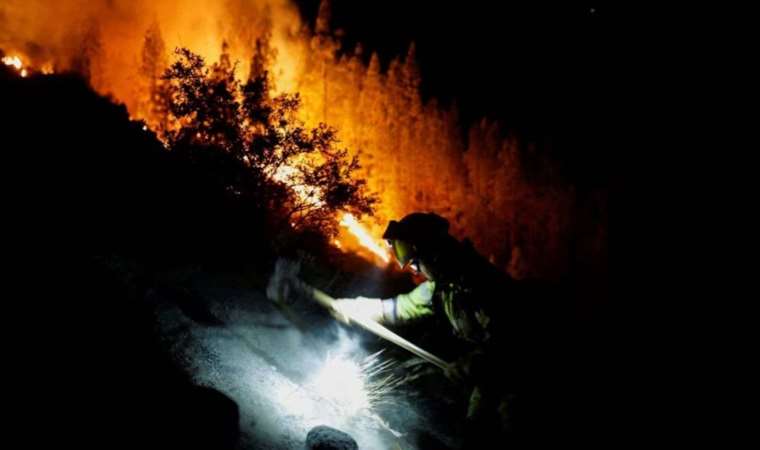Despite this positive development, officials cautioned that there remained a potential for hotspots within the fire's perimeter, which had extended to approximately 90 km (56 miles), to rekindle, especially during the central hours of the day. The island's emergency services conveyed this information on the social media platform X, formerly known as Twitter, and their efforts were focused on containing these lingering risks.
Initiating on August 15th, the fire consumed around 15,000 hectares (37,000 acres) of woodland within the national park encompassing Mount Teide, Spain's highest peak. The blaze necessitated the evacuation of approximately 13,000 individuals, though most have now been allowed to return to their homes. Canarian authorities have classified it as the most severe wildfire ever experienced within the archipelago.
Across various parts of Europe, firefighters have been battling devastating infernos in Greece, Italy, and Portugal. These fires have been driven by intense temperatures and arid, windy conditions, which scientists have linked to the effects of climate change.
On Tenerife, hundreds of firefighters have been diligently working to contain the flames. Additionally, 20 aircraft have been employed to collect water from the island's already depleted reservoirs, raising concerns among farmers who are already grappling with the challenges posed by a dry 2023.
Within the current year, wildfires in Spain have destroyed slightly over 65,000 hectares, which is consistent with recent averages. However, this figure stands in stark contrast to the 228,000 hectares consumed during the same period in 2022, which was considered the most severe year of the past decade, according to official data.















